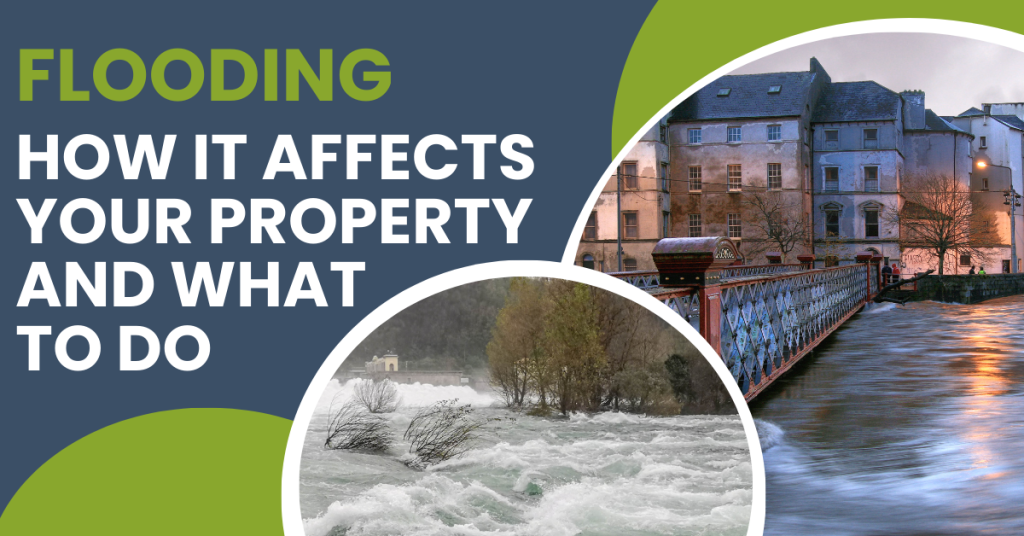
Flooding is a growing concern for homeowners in Ireland. It can cause severe structural damage and hidden long-term issues. A property survey can help assess risks before you buy or renovate.
How does flooding affect your property?
Structural damage: Water weakens foundations, walls, and floors, leading to cracks and instability.
Mould and damp: Moisture creates the perfect environment for mould, causing health risks.
Electrical hazards: Floodwater can damage wiring, increasing the risk of fire and electric shocks.
Decreased property value: A flood-prone home may be harder to sell or insure.
A home survey identifies past flooding signs and potential risks before you buy.
How to check if a property has been flooded before
Check flood maps: Use the OPW Flood Maps to see if the area is at risk.
Look for water stains: Marks on walls, skirting boards, or doors indicate past flooding.
Smell for damp: A musty odour can signal previous water damage.
Request flood history: Ask sellers for records of past flood events or insurance claims.
Get a property survey: A professional surveyor can spot hidden flood damage and advise on risks.
What to do if your home floods
Immediate steps:
- Turn off electricity: Avoid electrocution risks.
- Stop more water from entering: Use sandbags or barriers if possible.
- Document the damage: Take photos for insurance claims.
- Contact your insurer: Start the claims process immediately.
Long-term repairs:
- Dry out the home: Use dehumidifiers and ventilation to remove moisture.
- Disinfect affected areas: Prevent mould and bacteria from spreading.
- Inspect for structural damage: A property survey can assess if repairs are needed.
How to protect your home from flooding
Before buying:
- Check flood risk areas using online maps and professional reports.
- Book a property survey to assess drainage and structural risks.
Preventative measures for your home:
Install flood barriers: Protect doors and airbricks from water entry.
Improve drainage: Maintain gutters, drains, and soakaways.
Use waterproof materials: Opt for tiled floors and water-resistant plaster.
Raise electrical outlets: Reduce the risk of damage in future floods.
A property survey can identify if a property is vulnerable to flooding and suggest solutions.
Do you need a flood risk assessment?
If you’re buying or renovating, a flood risk assessment can determine your property’s vulnerability. Mortgage lenders may also require this in high-risk areas.
Concerned about flooding? Book a property survey today!
